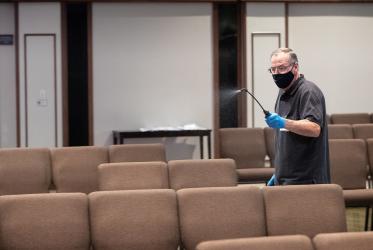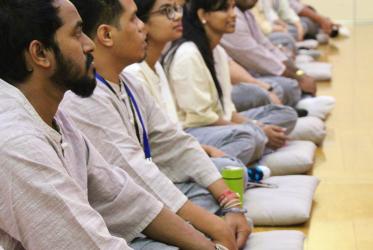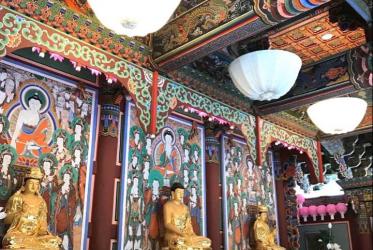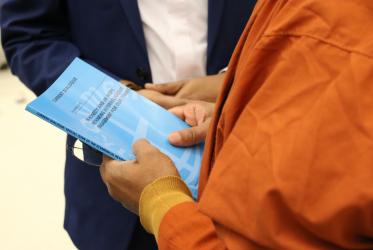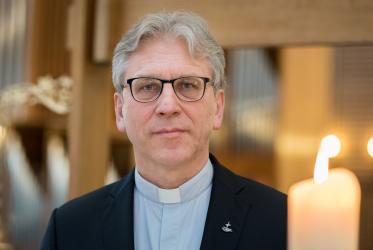Displaying 141 - 160 of 376
Bible study addresses church identity in pandemic
17 September 2020
Vesak Day commemorated at the UN
11 May 2020
Freedom of religion rooted in justice
06 March 2020
Festivities and dialogue launch new WCC journal
07 February 2020
WCC’s interreligious YATRA Programme to be expanded globally
16 January 2020
WCC condemns attack at Hanukkah celebration in New York City
29 December 2019
